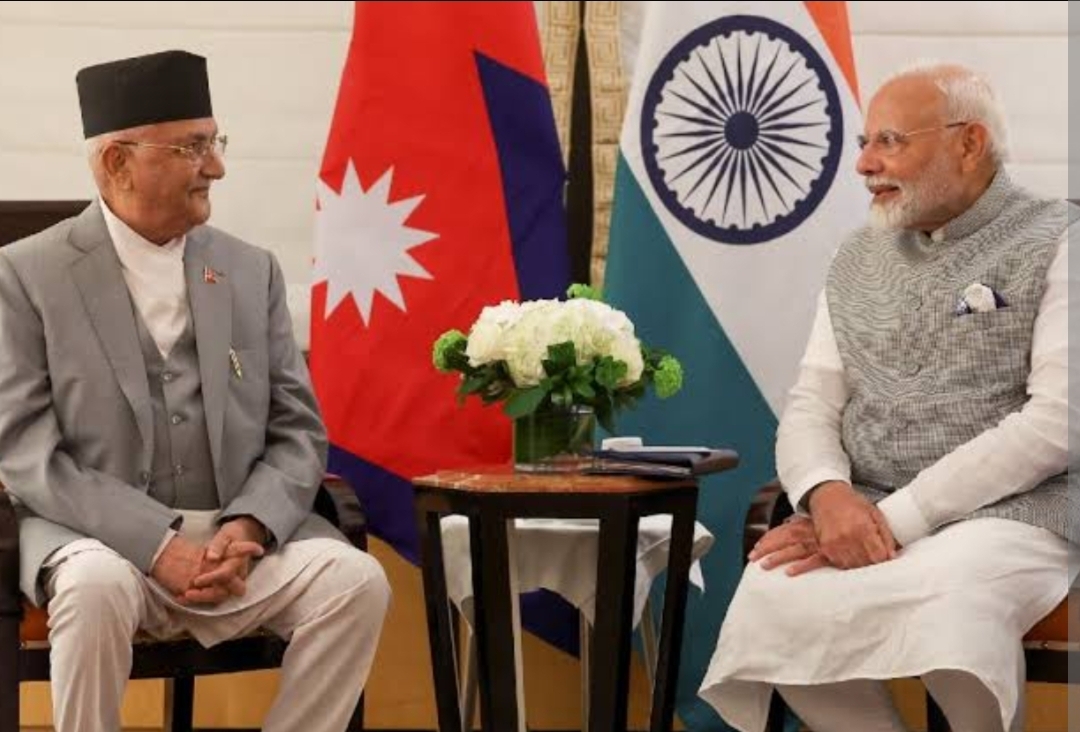“Untenable”: India Rejects Nepal’s Objection to India-China Trade Through Lipulekh

New Delhi | August 21, 2025 India on Wednesday firmly rejected Nepal’s objection to the resumption of border trade with China through the Lipulekh Pass, calling Kathmandu’s territorial claims “unjustified, untenable, and not supported by historical facts.” The Ministry of External Affairs (MEA) asserted that India’s position on the issue has remained “consistent and clear” over the decades. The response came after Nepal’s Ministry of Foreign Affairs issued a statement objecting to the reopening of India-China trade through the Himalayan pass, which lies in the Kalapani-Lipulekh-Limpiyadhura region. Nepal has long maintained that the territory falls within its sovereign boundary, citing historical treaties and maps that were incorporated into its Constitution in 2020. MEA spokesperson Randhir Jaiswal said that border trade through the Lipulekh Pass was not a new development but a long-standing practice between India and China. “Trade between the two countries through Lipulekh commenced in 1954 and has continued for decades. It was temporarily disrupted in recent years due to the Covid pandemic and other factors. Both sides have now agreed to resume it,” Jaiswal said. On Nepal’s territorial objections, he called the claims a “unilateral act” and termed the “artificial enlargement” of Nepal’s map as “untenable.” India maintains that Lipulekh, Kalapani, and Limpiyadhura are integral parts of its territory. “Such claims are neither justified nor based on historical facts and evidence. Any unilateral enlargement of territorial claims is untenable,” he said, while adding that India remains open to “constructive interaction with Nepal” to resolve outstanding boundary matters through dialogue and diplomacy. Nepal’s statement, however, insisted that the areas in question—Limpiyadhura, Lipulekh, and Kalapani—situated east of the Mahakali river, are an “inseparable part” of Nepal. “These areas are also officially incorporated in Nepal’s map and enshrined in its Constitution,” its foreign ministry said. Kathmandu further stressed that it has repeatedly urged both India and China to refrain from road construction or trade activity in the disputed territory. The fresh row emerged after a joint statement was issued in New Delhi on Tuesday, following talks between Chinese Foreign Minister Wang Yi and Indian leaders including External Affairs Minister S. Jaishankar, NSA Ajit Doval, and Prime Minister Narendra Modi. The statement confirmed that India and China had agreed to reopen border trade through three designated trading points—Lipulekh Pass, Shipki La Pass, and Nathu La Pass. In response, Nepal’s foreign ministry clarified that it had already communicated to both India and China that the Lipulekh area lies within Nepalese territory. The ministry also said that the government is committed to resolving the boundary dispute through diplomatic means based on historical treaties, maps, and other evidence, while upholding the “spirit of cordial and friendly relations” with India. The border issue between India and Nepal has remained sensitive since June 2020, when Nepal formally updated its political map to include the three disputed areas—Lipulekh, Kalapani, and Limpiyadhura—through a constitutional amendment. Nepal shares an 1,850-km-long open border with five Indian states: Sikkim, West Bengal, Bihar, Uttar Pradesh, and Uttarakhand. India Rejects Nepal’s Objection on Lipulekh Trade New Delhi | Aug 21, 2025 India dismissed Nepal’s protest over reopening trade with China through the Lipulekh Pass, calling Kathmandu’s claims “unjustified and untenable.” The MEA said border trade here dates back to 1954 and was only paused during Covid. Nepal insists the area lies within its territory.




